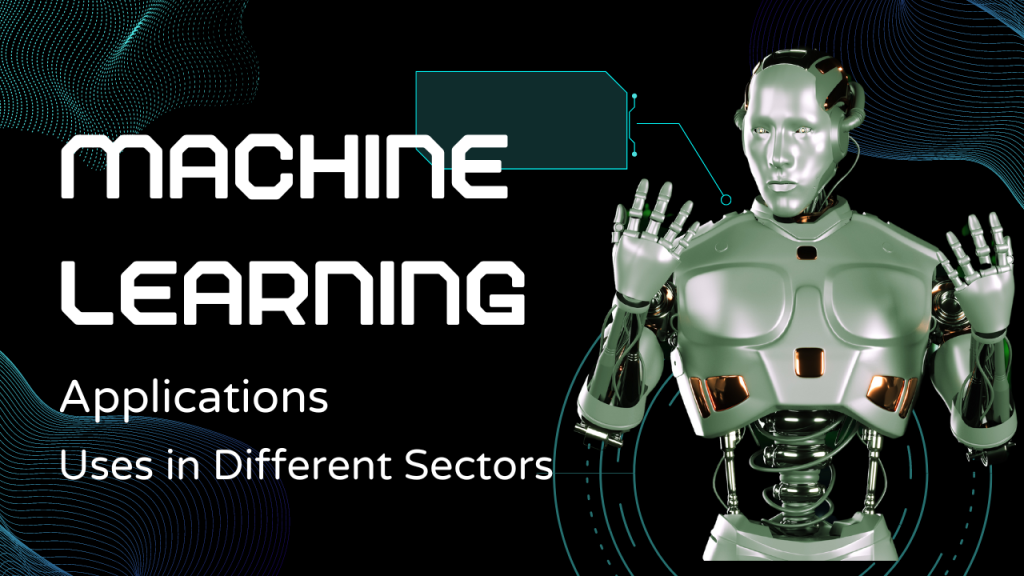We daily encounter tonnes of information bombarded at us from various mediums. Today what we face is information density, as opposed to information scarcity before the advent of the Internet.
From a company’s perspective, this poses a threat. Companies face the possibility of losing their communication targeted toward their potential customers in the clutter. Study shows that 81% of people can’t make a decision because of information overload and too many options to choose from.
In such a scenario a company’s best option is to adopt the latest technology to help them to understand their customer’s needs, the channel they engage with most, and collect the data from their digital activities to target customized messages addressing their need and propelling them to go for the purchase.
Artificial Intelligence (AI) and Machine Learning (ML) have a lot of potential in terms of marketing and sales functions.
For those of us who are really clear on what AI and ML mean, simply put, AI is the ability of a machine or program to act the way human intelligence would. This entails identifying, synthesis of data, and predictive analytics. Whereas ML is concerned, it is the ability of a machine or program to decipher large amounts of data to understand patterns, decode images, predict outcomes, and detect any anomalies.
Let’s take a look at the case of Starbucks and how it used ML and predictive analytics to create a unique customer experience and thereby boost their sale. Starbucks places a great deal of attention on its unique strategy of customization of its coffee as per customers’ preferences. This makes the customer experience at their stores a pleasurable one.
It created a personalization engine that was integrated with the customer’s mobile app, 3rd-party data, search patterns, buying history, and other available contextual data to provide customized updates and suggestions. This helped them increase their revenue and user interaction.
Here are some use cases of AI in marketing functions –
- Marketing campaigns have multiple touchpoints with their audience. The data collected from these touchpoints is unstructured. AI can help marketers classify, segment, and organize this data to understand which product is performing how and what are the non-performing products and why. This helps them to plan their marketing strategies tailored for each segment of customers.
- Similarly, from the data collected and segregated the marketers can detect patterns in purchase behavior and the AI uses predictive analytics to predict the future actions or preferences of the customers. For example – Netflix gives movie recommendations based on the movies watch previously or the most used search term.
- AI makes localization easy based on the search preferences, the language option selected on the search engine, and the percentage of viewers opting for which input language.
- Content writers rely on predictive text and grammar suggestions to improve their writing. AI also suggests variation so the sentence, synonyms, and punctuation marks and detects the tonality of the voice in the text.
- Machine learning helps the markets target a specific audience depending on the data collected. For example, chatbots collect numerous data points which help the machine to understand audience engagement, and preferences and accurately assist them with their purchase decision.
- Machine Learning is also used in devices connected through IoT. It uses the data to predict the potential threats, breakdowns, or any issues the device might face and gives potential solutions for them.
- ML helps in automating the marketing campaigns. For example – we often receive gift cards, coupons, or discounts during our birthdays or anniversary. This is due to the data collected from us at the time of purchase in the store or on the website which is then used to increase the engagement and thereby the revenue.
AI and ML have paved the way in our daily lives. We are surrounded by data that we consciously or subconsciously give away. This data is then utilized by the marketers to establish long-term and relevant communication with us. As marketers, we should use the data to our advantage and target the right audience with the right communication.
Understanding the basics of marketing and integrating the use of AI and ML in it is the sign of a skilled marketer. MIT School of Distance Education is one such organization that recognizes the change in the process of marketing and strives to match the skill gap the industry faces today by mentoring marketing professionals to identify the gap and utilize their knowledge to fill it.
MIT SDE provides a wide range of specializations of which a Post Graduate Diploma in Digital Marketing goes a long way in upskilling working professionals and coping with the latest trend and disruptions in marketing.


